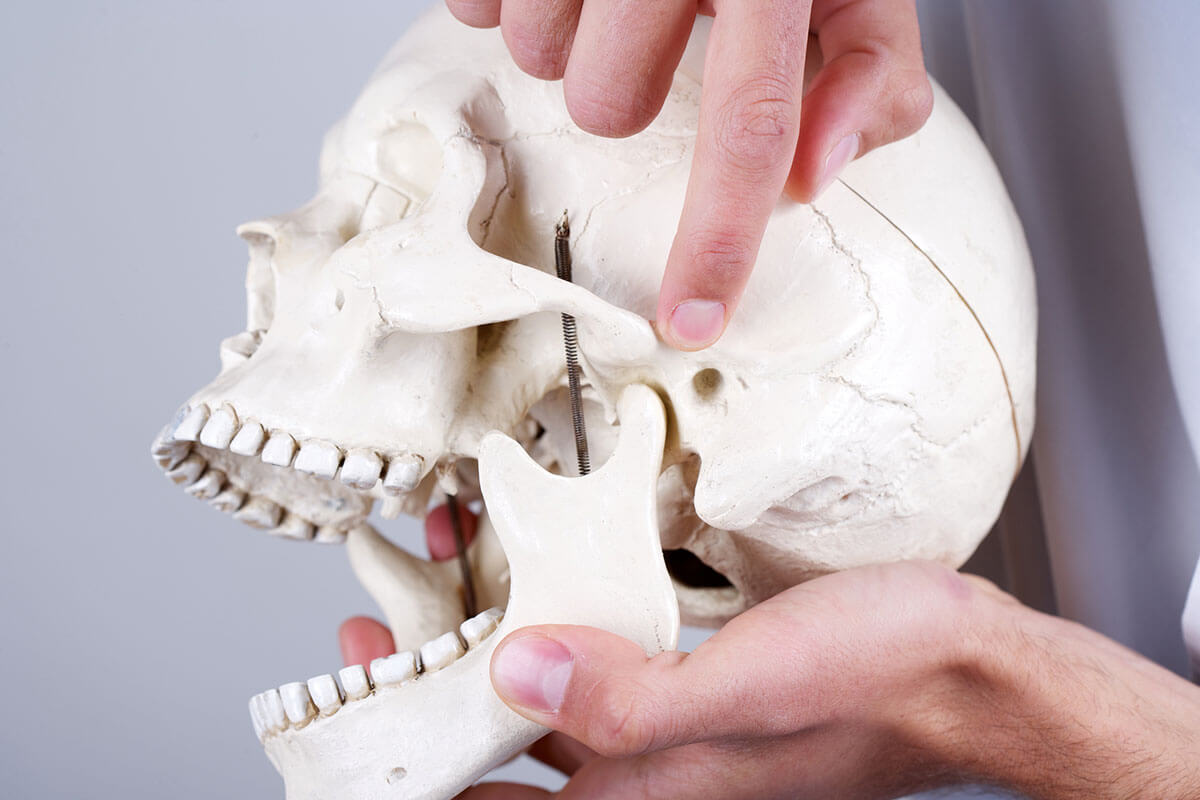TMJ Disorders

The temporomandibular joint (TMJ) is similar to a sliding hinge that connects your jawbone to your skull. TMJ disorders can cause pain in the jaw joint and in the muscles that control jaw movement.
To treat TMJ disorders, first the cause has to be identified. In less severe cases TMJ disorders can be treated with self-managed care (eating soft foods, using ice packs, avoiding extreme jaw movement) or nonsurgical treatments (anti-inflammatory medications, Botox injections, or stabilization splints). In severe cases surgical treatments (jaw joint replacements) may be necessary.
TMJ conditions fall into three main categories:
- Myofascial pain – discomfort or pain in the muscles that control jaw function.
- Internal derangement of the joint – a possible indicator of a displaced disc, dislocated jaw, or injury to the condyle.
- Arthritis – a degenerative inflammatory disorder.
